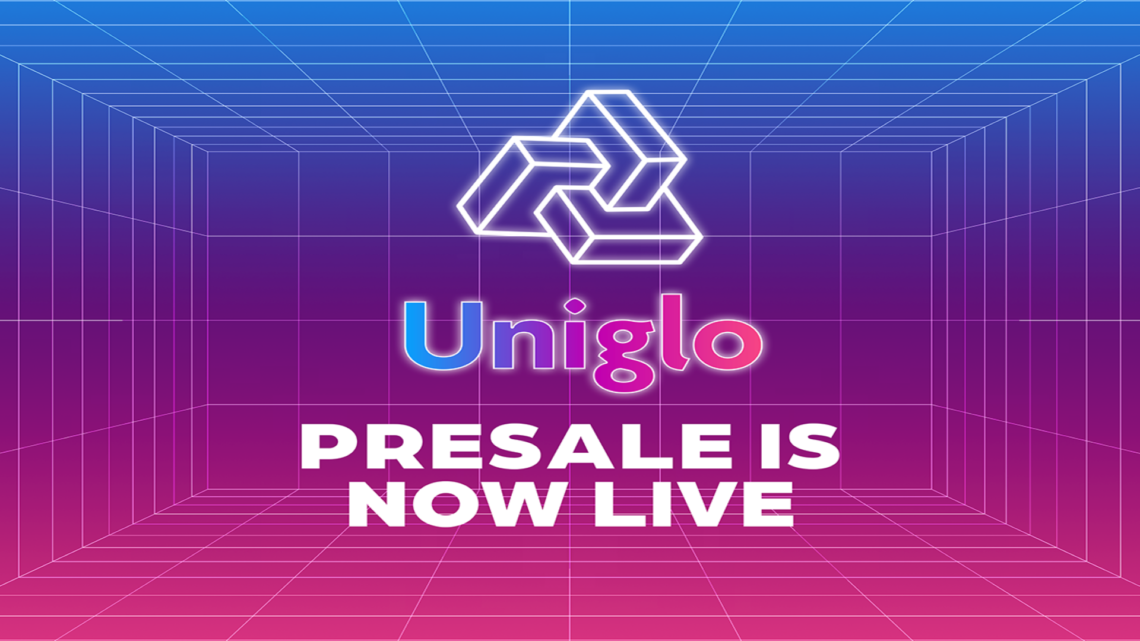Tokens burns are a common aspect of tokenomics, and it takes a high degree of innovation to elevate the practice of burning to a level that turns the heads of longstanding crypto investors. However, a new crypto gem called Uniglo.io (GLO) is doing just that. Uniglo.io is implementing burn mechanics that are catching the attention of Avalanche (AVAX) and Uniswap (UNI) holders.
Uniglo.io (GLO)
Uniglo.io is a new project in the decentralized finance (DeFi) space that offers investors the latest iteration in social currencies – GLO. This GLO token is pegged to a multi-asset-backed treasury, which the Uniglo community will use to purchase various assets. As the community-selected assets appreciate, so will the value of GLO.
However, another compelling feature of Uniglo.io that could boost the value of its token is its dual burn strategy. First, the project will apply a standard burn model that removes a percentage of each buy and sell transaction from circulation. Second, it will use profits generated from the sale of its assets to repurchase GLO tokens in the market. These repurchased tokens are then sent to a dead wallet and removed from circulation forever. With a depleting supply of GLO, the community hopes to drive the token’s price, benefiting loyal token holders in the long run.
Avalanche (AVAX)
When talking about Uniglo.io and its rising popularity among prospective investors, we cannot help but talk about Avalanche (AVAX) holders who are increasingly entering the Uniglo.io community. AVAX holders are no stranger to token burns, of course. AVAX is used to pay for fees in the Avalanche ecosystem. However, to benefit users in the community, all fees are burned. As of this writing, 1,907,336 AVAX tokens in fees have already been burned. The protocol has a maximum supply of 720 million AVAX tokens with over 284 million in circulation.
Uniswap (UNI)
Uniswap (UNI) holders are also very adept with token burning. Token burns are necessary for UNI holders to retrieve deposited liquidities and accrued fees. By burning their token, liquidity providers give up their portion of the Uniswap liquidity pool. Currently, the platform has a token supply of 1 billion UNI tokens, which will be distributed over the next four years. After all these tokens are made available to the market, the platform will inject a 2% inflation rate of 2% per year.
The bottom line
Burning tokens is a well-established practice in the cryptocurrency space. It takes an innovative spirit with a long-term view on growth to elevate the standard burn model to which we have become accustomed. However, with the burn mechanics of Uniglo.io – which according to holders of AVAX and UNI are second to none – the industry welcomes a new token burn approach that could be revolutionary.
For More Information:
Join Presale: https://presale.uniglo.io/register
Website: https://uniglo.io
Telegram: https://t.me/GloFoundation
Discord: https://discord.gg/a38KRnjQvW
Twitter: https://twitter.com/GloFoundation1
Disclaimer: Any information written in this press release or sponsored post does not constitute investment advice. Thecoinrepublic.com does not, and will not endorse any information on any company or individual on this page. Readers are encouraged to make their own research and make any actions based on their own findings and not from any content written in this press release or sponsored post. Thecoinrepublic.com is and will not be responsible for any damage or loss caused directly or indirectly by the use of any content, product, or service mentioned in this press release or sponsored post.
For publishing articles on our website get in touch with us over email or one of the accounts mentioned below.


 Home
Home News
News










